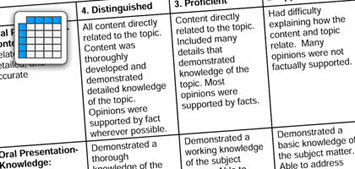
Great books to help turn your readers into writers.

Encourage emerging readers and writers by turning them into authors as you create your own versions of your favorite books. Here are some of our favorite titles for student adaptation, whether you have each student create a single page of a class book, work collaboratively to adapt a classic, or ask each student to design their own book.
Use the repetitive text to describe an environment, habitat, community, or holiday.
Students draw pictures of themselves and write descriptively about their dress, hobbies, and more.
Create a sentence starter “In the tall, tall grass” with space for a noun and a verb. Perfect for inventive spelling.
This fun story challenges the reader with rhyming sentences like, “Sue sews rose on Slow Joe Crow’s clothes.” Put your students in the driver’s seat by asking them to use their knowledge of phonics to write their own tongue twister stories.
“Winter is caps, hats, socks and mittens” could be “Math is…, “Desert is…, America is…”
“Every bird loves a tree, every flower loves a bee, every lock loves a key, and I love you. ” Have student create their own "backwards" poems. Great for a Valentine's project in intermediate grades.
Make up a diary of an animal, a famous person, a life cycle, or a landmark. Tell from first-person narrative.
After reading from this collection of seasonal haikus for boys, have your students write their own haikus. Collect them into a class book of poetry.
After reading Pet Show! by Ezra Jack Keats, ask your primary learners to paint a picture of their "fantasy" pet, describe the award it would win, and create your own class pet show.
Practice phonics and phonemic awareness by asking students to write their own verse for Raffi's Down by the bay song.
Fill the background with color and paint shapes. “It looked like a cat but it wasn’t” At the end, “It was just a cloud.”
This is the way we (do an activity). Show drawings or photos of the correct way to do something.
This story tests students phonemic awareness and phonics with rhyming creature names. Challenge students to apply their knowledge of phonics by choosing a location and then developing a own name for a creature based on the location.

Have students create their own "walk" stories using a range of prepositions.
Have students create their own "how-to" books.
Practice descriptive writing. “The important thing about grass is that it is green. It’s soft and feels squishy. But the important thing…”
Use imaginative adjectives to define superlatives. “The smelliest thing in the world is a skunk convention.”
Forecast the weather with strange items falling from the sky, such as elephants or candy bars.

Follow us on Instagram for daily inspiration

Create a thought web, cluster, flowchart, or other graphic organizer for a lesson
8 first projects to get students using technology
Creative, digital book reviews
Fun and powerful ideas with animated characters

Wixie
Share your ideas, imagination, and understanding through writing, art, voice, and video.

Rubric Maker
Create custom rubrics for your classroom.

Pics4Learning
A curated, copyright-friendly image library that is safe and free for education.

Wriddle
Write, record, and illustrate a sentence.

Get creative classroom ideas delivered straight to your inbox once a month.
Topics